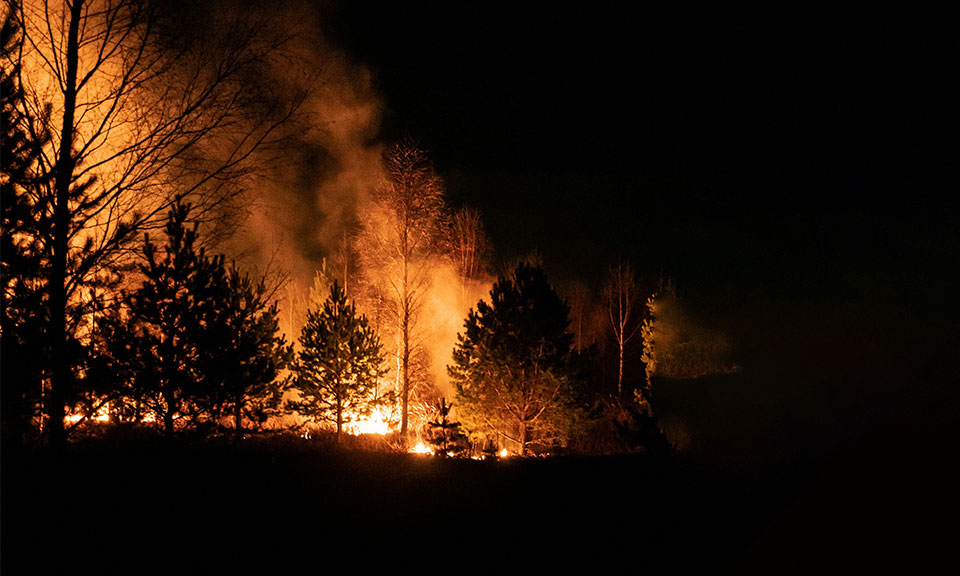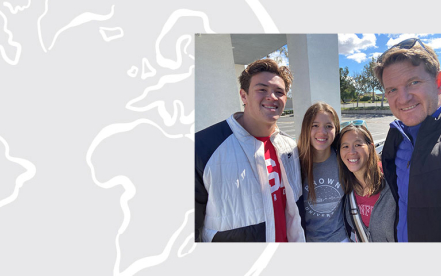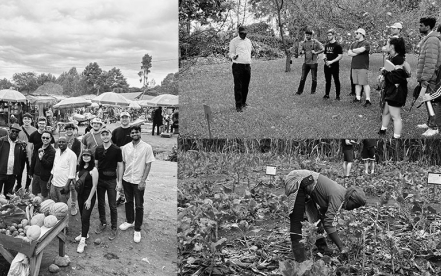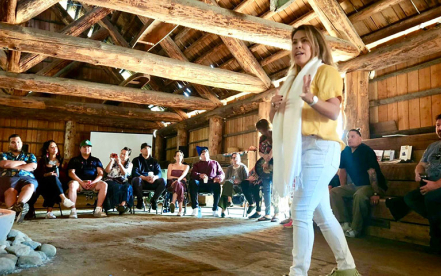Addressing the urgent human health impacts of B.C. wildfires

Climate change is bringing more frequent and severe wildfires to B.C., prompting health authorities to sound the alarm about worsening impacts of smoke and extreme heat—especially for the province’s most vulnerable people.
As the Legacy for Airway Health Chair in Promotion of Lung Health, SFU professor Stephanie Cleland is part of a burgeoning movement to better understand and adapt to these pressing challenges.
“Wildfire smoke and heat are problems that are definitely not going away anytime soon. It is important in both the short- and long-term to protect communities across Canada, and try to get the research we need to support those policies and interventions,” says Stephanie.
Since first beginning her studies on wildfires in 2018, she says public interest has rapidly gained momentum. Growing up in Oregon, Stephanie recalls that wildfire smoke wasn’t nearly as prevalent when she was a child as it is today.
Seeing it hit close to home increased my motivation to understand how wildfires impact human health, because it is affecting my loved ones and many other people.
Through environmental epidemiology, exposure assessments and health impact assessments, Stephanie says her and other’s research is showing that certain demographics—children, older populations, pregnant people, and those with pre-existing conditions—are most at risk. This research can then guide public health initiatives such as improving building air filtration systems or raising awareness about strategies to minimize harmful exposure.
“For example, if we can pinpoint certain periods in a child’s early life when they are most vulnerable, or certain levels or types of exposure that are most dangerous, that information can be really useful to daycares and schools,” she says.
This new chair at SFU is made possible by an endowment from the Legacy for Airway Health, a multidisciplinary initiative based at the Vancouver Coastal Health Research Institute that addresses the two most common chronic lung diseases—asthma and COPD—with the goal of accelerating improvements in practice, behaviour and policy change.
“Although wildfire smoke is an area of pollution research that is clearly front-and-center in the minds of scientists and the public, we are way behind in terms of really understanding its effects compared to what we've done related to pollution from traffic,” says Dr. Chris Carlsten, a distinguished professor, clinician and researcher, who, as director of Legacy for Airway Health, was instrumental in establishing the chair as a bridge between healthcare practitioners and academics like Stephanie.
"Stephanie is in a group of up-and-coming faculty members who have harnessed the best technology for identifying exposures as precisely as possible, which increases our ability to understand the effects on people."
Stephanie says one major benefit of this chair is that it allows her to work with interdisciplinary faculty at SFU, in addition to researchers at Legacy for Airway Health and public health agencies across the province.
“This position exposes me to a really rich network of people thinking about respiratory health and climate change, giving me access to ongoing projects and existing datasets from diverse sources,” she says.
Faced with a situation that isn't very optimistic, it gives me a bit of optimism that we're understanding it's important to research and understand climate change as a public health issue.


